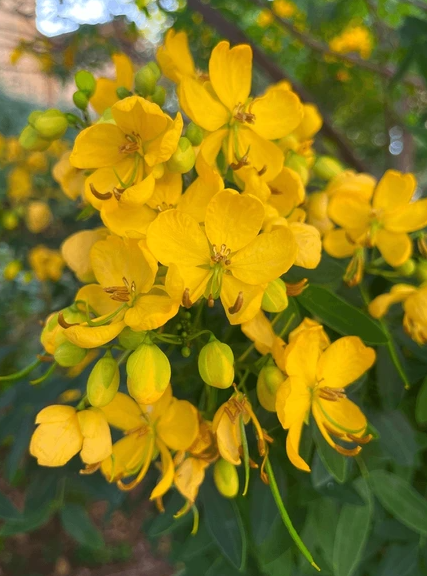Senna Tora Plant
Annual herb to 1 m, Senna Tora yields edible leaves (sparingly). Asian native, thrives in warm, sunny conditions. Medicinal, used in small amounts for culinary purposes.

Habit
Annual herb
Height
0.3-1 m
Growth
Fast
Soil
Well-drained, fertile
Shade
Full Sun
Moisture
Moderate
Edible
Yes (leaves, sparingly)
Medicinal
Yes (laxative)
Origin
Asia
Climatic Condition
Tropical
Temperature (°)
20-35
Humidity (%)
50-70
Potting media
Loam+Compost
Fertilizers
NPK(5:10:10)
Watering
Every 2-4 days
Plant Weight
~0.1-0.5 kg
Flowering Time
Summer
Soil Ph level
6.0-7.5
Water Ph level
6.0-7.0
Soil EC
0.5-1.5 mS/cm
Yield Per Plant
~0.1-0.3 kg leaves
NPK ratio
5:10:10
life Span
1-2 months
Health Benefits
Laxative, skin health
Suggested Grow Media or Potting Mix ?
50% loam, 30% compost, 20% sand
Suggested Fertigation/Fertilizers
5:10:10 weekly
Common Diseases and Remedies
Leaf spot, downy mildew, powdery mildew, aphids, caterpillars, whiteflies
Dark spots with yellow halos on leaves, grayish-white mold on leaf undersides, white powdery growth on leaves, sticky residue and curled leaves, holes in leaves, small white insects on leaves
Remove and destroy affected leaves, improve air circulation, apply neem oil or sulfur spray, use insecticidal soap or neem oil, hand-pick caterpillars or use Bacillus thuringiensis (Bt), apply neem oil
Fungicides with copper, fungicides with chlorothalonil, fungicides with myclobutanil, insecticides with imidacloprid, insecticides with spinosad, insecticides with pyrethrins